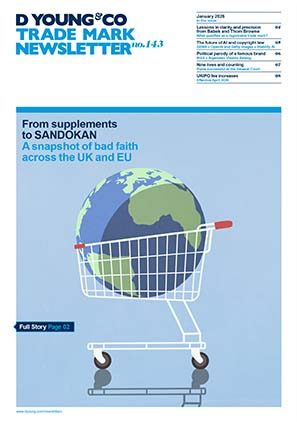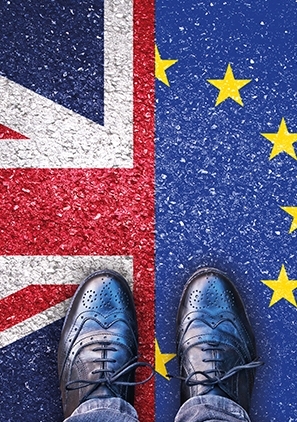Trump International loses High Court appeal
The High Court has upheld a UK Intellectual Property Office (UKIPO) decision in relation to a trade mark for “TRUMP TV” filed in bad faith. Operations LLC v Comptroller General of Patents, Designs and Trade Marks [2019] EWHC 769 (Ch).
Background
Michael Gleissner is a name known to many in the trade mark profession. He is known for his companies’ extensive trade mark applications, oppositions and cancellation actions, usually in relation to famous trade marks and high profile companies, which are widely seen to be causing disruption for commercial gain.
In 2016 Gleissner entities reportedly applied for over 800 UK trade marks. In November 2017 Gleissner entities were involved in 97 live contested trade mark cases before the UK IPO (5% of the total). Companies controlled by Mr Gleissner have not paid 49 costs orders, which amount to about one-third of the entirety of unpaid costs orders in the UK. He reportedly has over 1,000 UK company names, with those entities used as the applicants on over 4,000 trade mark applications in at least 38 jurisdictions.
The application
In October 2016, Gleissner filed an application for the mark “TRUMP TV” in classes 38 (telecommunication services) and 41 (production of radio and TV shows and more) in the name of “Trump International Limited”. The mark was opposed by DTTM Operations LLC, who managed the IP rights for Donald Trump although it no longer has links to him.
The mark was filed just a day before Trump International Limited was incorporated and less than three months before the inauguration of Donald Trump as President of the USA.
The opposition
DTTM opposed the application based on unregistered rights and bad faith, filing extensive evidence of the past activities of Mr Gleissner’s companies, DTTM’s trade mark rights, and the lack of connection between DTTM and Trump International.
According to section 3(6) of the Trade Marks Act 1994 a trade mark “shall not be registered if or to the extent that the application is made in bad faith”. A trade mark application may be considered to have been filed in “bad faith” if the applicant had no intention of using the trade mark to distinguish its goods from those of others.
The IPO decision
The hearing officer refused the application on the ground of bad faith alone and did not proceed to rule on the other grounds of opposition. Trump International was ordered to pay costs of around £15,000. According to the hearing officer, the conduct of Michael Gleissner / Trump International in previous matters illustrated; “a flagrant degree of cynicism on the part of the applicant, where other related companies have demonstrated a pattern of similar behaviour”. Therefore, “In considering whether off-scale costs are here warranted, I particularly bear in mind the well-evidenced pattern of abusive behaviour on the part of Mr Gleissner and his related companies.”
High Court appeal
Trump International appealed to the High Court and argued that the hearing officer had erred by failing to make any findings in relation to the other grounds of opposition. It was also claimed that the hearing should have been stayed pending the CJEU’s judgment in the Skykick case. A key question was whether the hearing officer was wrong to take into account evidence of Mr Gleissner’s activities in unrelated actions in finding that Trump International Limited’s application was made in bad faith.
The appeal was dismissed, with the Hon Mr Justice Henry Carr addressing the bad faith nature of the application; “Mr Gleissner’s assertion of an intention to use the mark is, in my judgment, not credible…the evidence gives no details as to how the business would operate, how revenue would be generated, what markets and demographic would be addressed, nor in what geographical regions or on what platforms the service would operate. Nothing is said about when the planned business was or would be launched.”
In short
Clearly this is not the last we will see of Gleissner entities involvement in UK IPO proceedings but the High Court has made a stand, which could have precedential value.
In the meantime, as ever brand owners should remain alert to Gleissner’s activities and the evidence demonstrating a pattern of bad faith.


